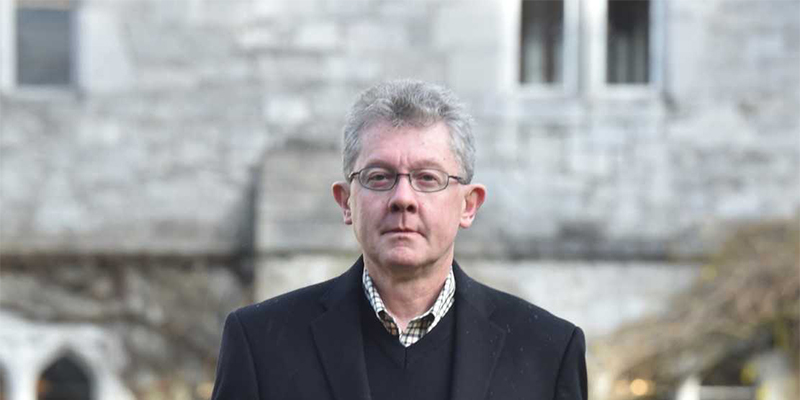UCC and Cornell University partner for early career research opportunities

UCC PhD Students have been granted funding to carry out their research work at the state-of-the art laboratories at the world-leading Cornell University in the US.
The research students, under the guidance of Professor Séamus Davis, are to benefit from grants awarded by The Gordon and Betty Moore Foundation, which has awarded funding to support twenty scientists as experimental investigators in the Emergent Phenomena in Quantum Systems (EPiQS) Initiative.
Each investigator will receive $1.6 million of unrestricted support over the next five years to pursue innovative, risky research with a potential for significant advances in the concepts and methods used to investigate quantum materials. The collective impact of these investigators will produce a more comprehensive understanding of the fundamental organising principles of complex quantum matter in solids.
Prof Davis, who also holds academic positions in Cornell and Oxford, is researching the macroscopic quantum physics of emergent quantum matter at low temperatures.
About this newly announced funding, Prof Davis said:
“Our group members from Cork, Cornell and Oxford travel between our labs, working together on research projects that use the complementary resources and instruments available at each site. An extraordinarily generous and inspiring element of the renewed Moore Foundation EPiQS program is that it enthusiastically supports this research model.”
Niall Kennedy is one PhD student set to benefit from the grant.
“Towards the end of my BSc Physics in UCC, I was looking at joining Prof. J.C. Séamus Davis’ research group as a PhD student. I decided to visit his laboratory in Cornell University and was amazed by the state of the art STM laboratory there. Seeing this laboratory and speaking with Davis group members in Cornell is what set my mind on a PhD.
“It is exciting to know the Moore Foundation will very generously support PhD students like me to travel to Cornell and undertake research with the brilliant minds and world class facilities that are available there. As soon as the Covid-19 pandemic allows me to travel, I plan to visit Cornell and I am certain the experience and knowledge I will gain there will be a huge boost to my early career as a PhD student and also accelerate progress in the laboratory in UCC,” Mr Kennedy said.
Prof Anita Maguire, Vice President for Research & Innovation, University College Cork, said the grant brings with it exciting opportunities.
“I very much welcome this generous support from the Moore Foundation which will enable PhD students from UCC to spend time in Cornell to carry out research using established facilities which will complement the research undertaken in UCC, and accelerate the development of expertise in the Davis’ research team in Cork, as the newly designed laboratory is opened in the near future. For the early career researchers this is a tremendously exciting opportunity,” she said.
Amalia Fernandez-Pañella, program officer in the EPiQS Initiative, said the Experimental Investigator awards are their largest grant portfolio.
“We expect that such substantial, stable and flexible support will propel quantum materials research forward and unleash the creativity of the investigators,” she said.
In addition, researchers, including UCC PhD students and postdocs, will participate in EPiQS community-building activities, which include investigator symposia, topical workshops, and the QuantEmX scientist exchange program.
Prof Seamus Davis’ research programme focuses on the macroscopic quantum physics of emergent quantum matter, including studies of superconductors, superfluids and supersolids. He specialises in the development of innovative instrumentation to allow direct human visualisation (or perception) of the macroscopic quantum physics of quantum matter.
Davis received his B.Sc. from University College Cork in 1983 and his PhD from the University of California, Berkeley, in 1989. He joined the Physics faculty at Cornell in 2003 and retired with Emeritus status in 2019.
Davis has received the Fritz London Memorial Prize (2005), the H. Kamerlingh-Onnes Memorial Prize (2009), the Science Foundation Ireland’s Science Medal (2016) among many honors. He is a fellow of the Institute of Physics (U.K.), the American Physical Society, the Max Planck Society (Germany), the Royal Irish Academy, and is a member of the U.S. National Academy of Sciences.
